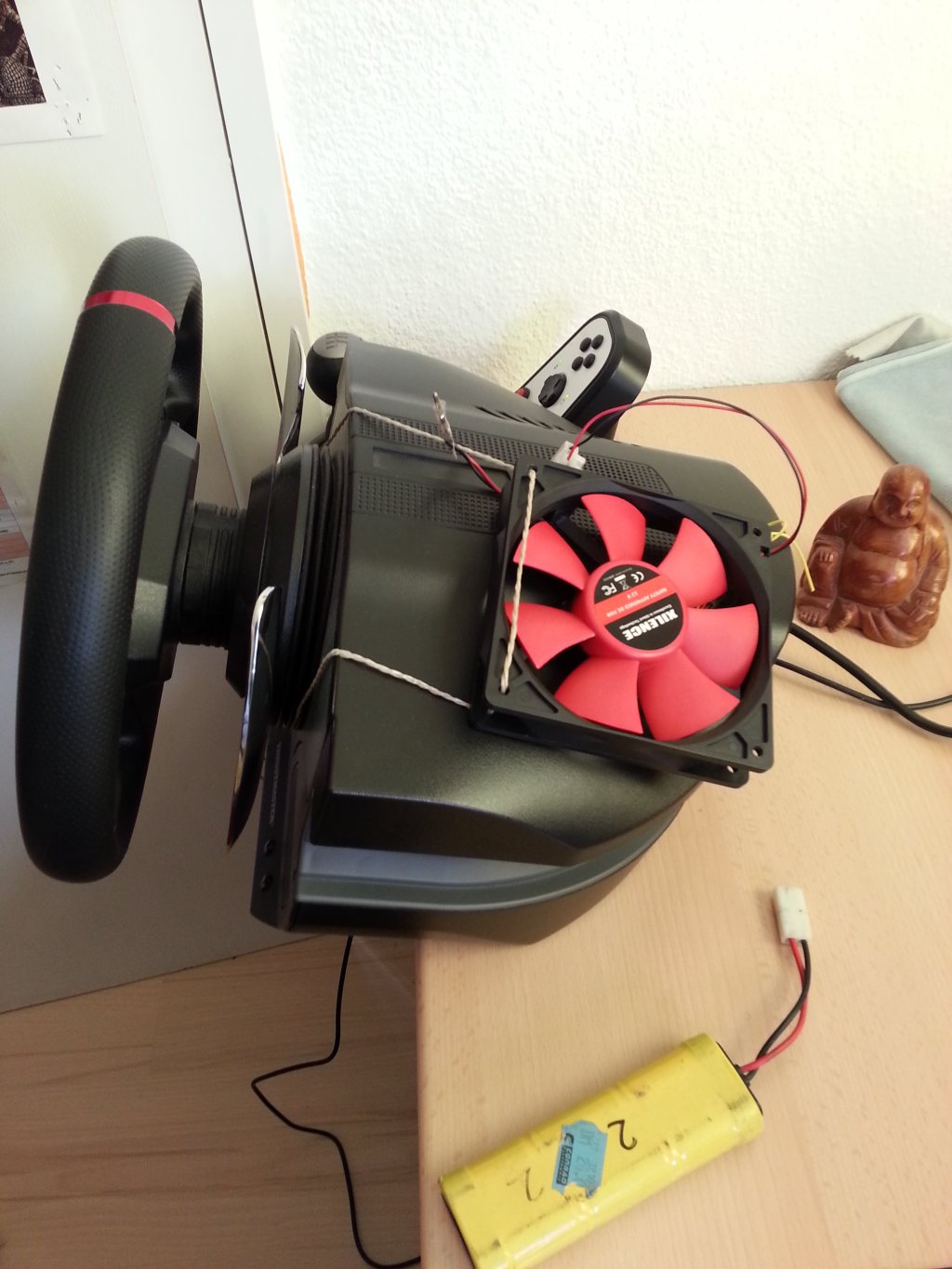Hi folks,
this post will explain how to fix the noisy, 5-cent fan that comes with most if not all ThrustMaster T500 RS wheel. To get this out of the way first: It’s simply incomprehensible why TM haven’t included a better quality fan with their otherwise extremely well-engineered product; A Euro or two extra wouldn’t have been to bad and would have gone a long way towards user satisfaction. Anyway, here goes.
DISCLAIMER: If you shock yourself of family member to death following this procedure, I’m certainly not the one to blame. I’m happy to know which end of the soldering iron gets hot, and that’s as far as my electronic skills go…. Gladly, none are required for this easy fix.
DISCLAMIER II: This fix looks *ugly*, and I mean ugly. No biggie though, it’s easy to improve on yourself so don’t worry. If you’re like me, you’re watching the road ahead while simracing and not caring about how your wheel looks.
Parts list:
o Battery pack / 9V DC battery (I have some battery packs left over from my Tamiya RC car racing days)
o 12 cm PC fan (the more silent, the better; I’m using a 12cm xilence fan)
o cable connectors (you can also solder these if you want to)
How to go about it:
– Carefully cut off the mainboard connectors from the fan, you’ll only need the red and black cable, keep the yellow one though if you want to regulate the fan at a later point (I found this unneccessary though if you use a quiet fan to begin with)
– Unplug the metal connectors from your fan connector, removing the insulation as usual from the end of the cable
– Use cable connectors to connect the bare-metal ends of the fan with the metal connectors from your plug
– connect the metal connectors to the poles on your battery pack / battery (make sure to get the polarity right, black <—> black and red <–> red, of course)
– By now, your fan should start turning. If not, your battery pack may be dead of you might have mixed up the wire polarities
– Use a piece of string to affix the fan to the *right side* on the whell housing. The left side won’t work as it doesn’t provide enough cooling to the wheel motor in order to prevent the internal fan from coming on after 20 minutes of usage or so.
– “Enjoy the xilence” 😉


